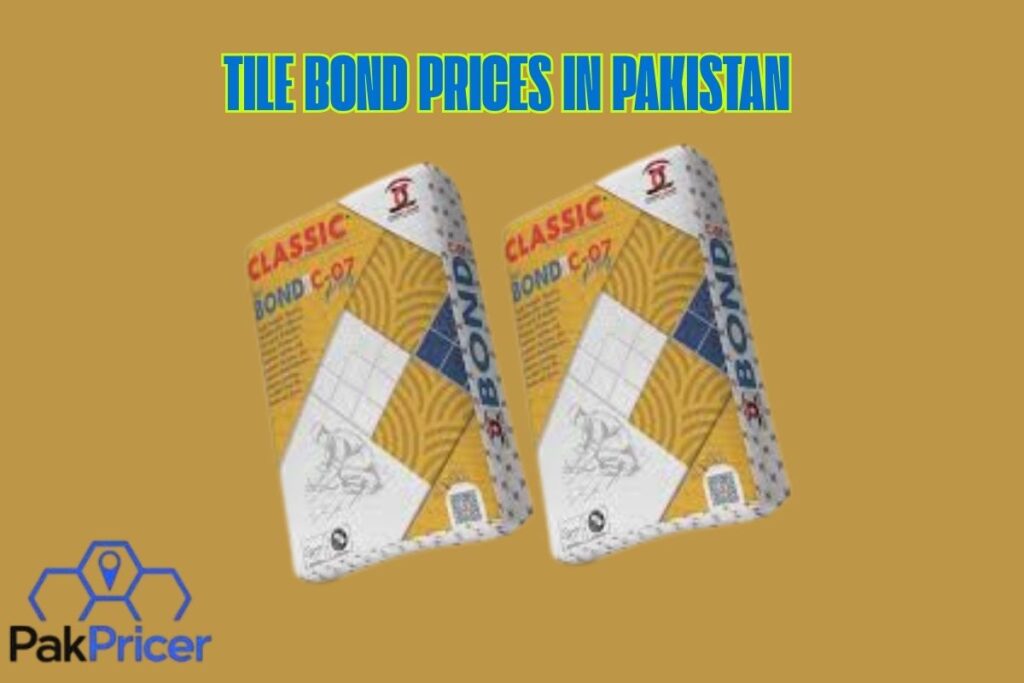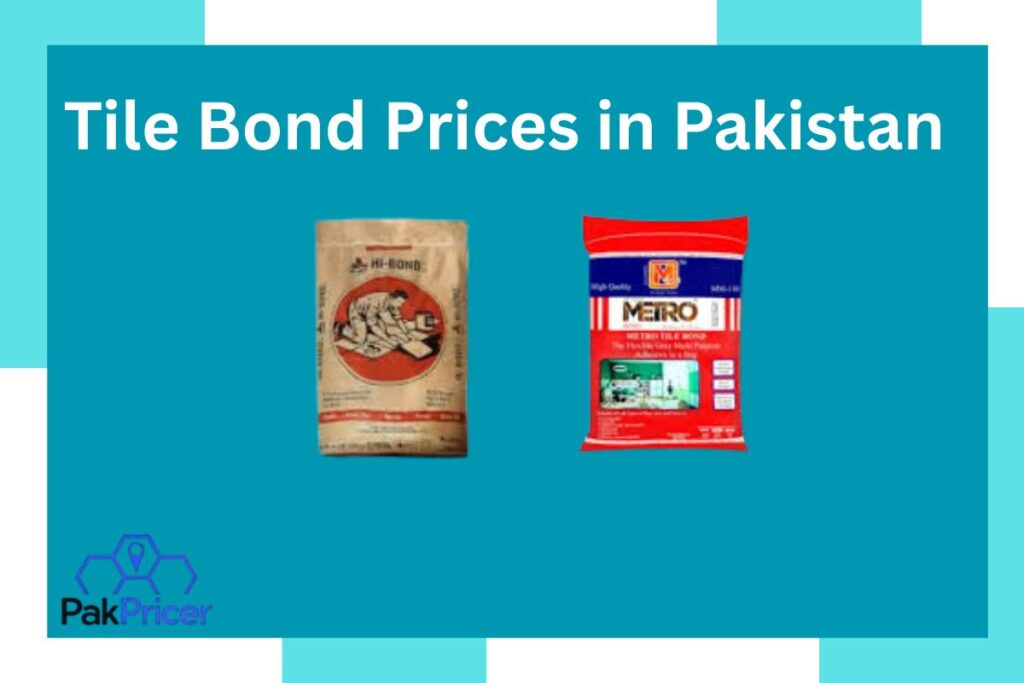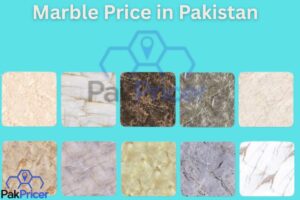Are you working on a remodeling job or adding on to your home? Tiles can greatly enhance the appearance of your walls and floors. If you have already picked out tiles to your floor, 1 factor which you should think about is the price of bonding tile in Pakistan.
Introduction to Tile Bonds
Tile bonds are specifically formulated adhesives to adhere tiles to flooring, including walls and countertops. They offer strong, water-resistant and providing long lasting velcro fastenings, ideal for use in wet and moist environments like bathrooms and kitchens. Its adhesive bond withstands cold and hot temperatures as well as water and moisture, and delivers the durability of tile in a tub or shower.
Tile Bond Prices in Pakistan
In Pakistan there are a variety of types of tile bond on the market. Prices vary based on the type, brand and the thickness of the glue. Here’s a list of well-known tile bond brands and their costs:

| Brand Name | Weight (KG) | Price (PKR) |
|---|---|---|
| Master Tile Bond | 20 KG | Rs. 580 |
| PCI Tile Bond | 40 KG | Rs. 1,200 |
| Happilac Tile Bond | 40 KG | Rs. 1,150 |
| Bestway Tile Bond | 20 KG | Rs. 570 |
| Bestway Tile Bond | 40 KG | Rs. 1,080 |
| Metro Tile Bond | 20 KG | Rs. 690 |
These rates are the perfect starting point for individuals who are looking to get tiles in Pakistan no matter if we’re speaking about small remodeling project or perhaps a big construction website.
Types of Adhesives for Tiling
There are different kinds of tiles bonds which are provided with different specifications, to suits the requirement of a particular customer. These are some of the most popular types:
Tile adhesives, cement-based For fixing wall and floor tiling. They are made of sand, Portland cement, and other components and are designed to be used in general tile applications.
polymer modified adhesives These are used to enhance the bond of metals, plastic, rubber and wood. They provide better performance for applications related to construction.
Epoxy Tile Adhesive Epoxy is recognized for its durability and strength. It is especially useful in water areas such as kitchens and bathrooms. It is an in-situ system with two components to be mixed.
Ceramic Tile Adhesive Adhesives that are used to bond ceramic tile to substrates such as metal, wood and concrete. They are usually cement based but there also polymer based and epoxy based adhesives.
Tile Bond Manufacturers in Pakistan
Tile bond in Pakistan is produced by many manufacturers and therefore available in multiple brands ranging from popular brands to newcomers in the market. Several of the most popular tile bond manufacturers are as follows:
Master Tile Bond
Shabir Tile Bond
PCI Tile Bond
ZA Tile Bond
Sea Star Tile Adhesive
Happilac Tile Bond
Xtreme Tile Bond
Stile Tile Bond
Bestway Tile Bond
Tile Bond vs. Cement: The Main Differences
Both tile bond and cement can be used to preserve tiles however, there are some differences:
ile Bond ( strong adhesive) generations and these tiles were expressly designed for tiling, they are waterproof so perfect for bathrooms / kitchens and other water areas.
Cement Cement is kind of all-purposeness adhesive but that doesn’t have much water-resistant like tiles. It is commonly found in outdoor tiling or in locations that do not require resistance to moisture.
Environmental Impact of Tile Bonding
Tile adhesives may be a cause of environmental destrution, e.g:
VOC Emissions: During the application of tile adhesives, VOCs can be produced which can pollute the air.
Waste creation Tile adhesive materials usually arrive in plastic packaging that may need a long time to decompose in garbage dumps.
poisonous Military adhesives do contain toxic chemicals and When thrown into landfills, they are with formaldehyde, which could contaminate the soil and water after being buried, if released into the environment.
How to Ensure A Tile-Bond That Will Last For a Long Time
Here are some things to help keep your tile bond around for a long time.
Clean and dry surfacesClean your surface with soapy water, then dry. Make sure your surface is free of dust and grease.
Pick the correct adhesive Ensure you use the correct adhesive for the tile type and floor material.
Spread evenly: You should be certain that there is a consistent spread of the adhesive so that the bond that is formed is strong and uniform.
Calculate the correct setting time Allow the adhesive to be set before laying can prevent the tiles from adhering properly.
If you want all your tile gaps in identical width,please be in stripe during installation.
Seal properly You’ll need to seal the tiles once you install them in order to prevent liquid and water from destroying the bond.
Tile Bond Preparation Method
Tile Bond Typically an unmixed, polymer-modified, dry-set mortar for repairing tiles to several substrates. For preparation:
Stir it by adding 3 parts water by volume and 1 part powder for tile bonding (teaspoon).
Allow the ingredients to mix together until a stiff paste has formed.
Let the solution sit for 15 minutes so the water hydrates properly.
Wait With that behind you the time has passed wait and stir the mix one more time to make sure to be uniform in texture.
FAQs
Can you put tile bonds down on any surface?
Tile bond is to be applied to dry, clean, contaminant-free surfaces only. Do not apply tile bond to sealed, waxed or coated surfaces.
What sort of tiling can be done without tiles?
Tile adheres to a variety of tiles such as porcelain, ceramic, or stone.
What does it take to get a surface ready to tile?
Make certain the surface is dust free, clean and dry, void of grease, dirt dust, and oil. Any irregular or uneven area must be smoothed before tile binding.
Why is the use of tiles advantageous?
The tiling bonds to form a strong and durable resin tile grout, which is ideal for heavily used areas as well as wet and moist environments such as bathrooms and kitchens.
What is the drying time to cure tile bond?
Drying time will depend on the adhesive used but a general rule of thumb is to let the glue dry for 24-48 hours.
What tile bonds must be retained after placement?
Smell remaining tile bonds being stored in a dry, cool area tightly sealed to prevent moisture.



